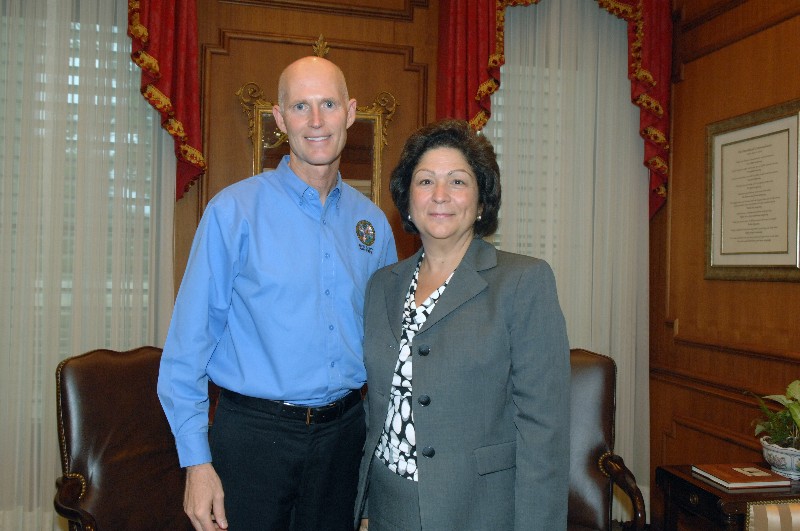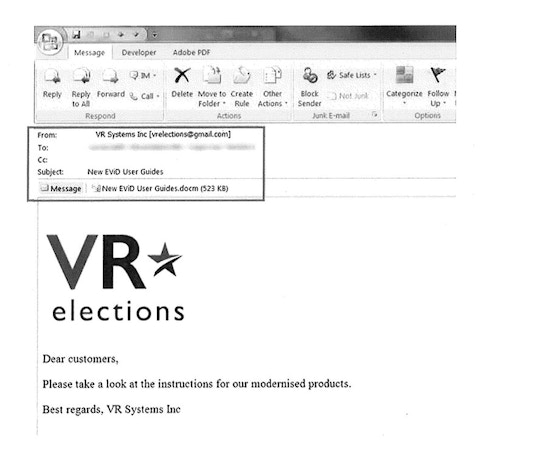Education and training are critical to building better police departments that will respect equality and enforce the laws against hate crimes. We've come a long way as a culture and as a country. We need to guard against oppression at all levels, at all times.
From
The Miami Herald:Hate crimes rare in Florida. But only because many police fail to report them accuratelyBY JACK BROOK
NOVEMBER 26, 2019 06:00 AM
The Miami HeraldA transgender woman gunned down in South Dade. Another burned to death in Clewiston. A third gender non-conforming person bound, beaten and dragged naked by car down the streets of Jacksonville.
All of these violent attacks took place in the last few months in Florida, and none have yet been identified by law enforcement as hate crimes, despite appeals from many in the LGBTQ community. Last year, Jacksonville led the nation in the murders of transgender women and not one of the killings, or other attacks against the LGBTQ community, were reported as hate crimes.
“We feel unsafe here,” said Paige Mahogany Parks, 47, a Jacksonville transwoman and director of the Transgender Awareness Project.
But you wouldn’t know it from the data. National hate crime statistics released by the FBI this month show that Florida continues to lag behind many other states in hate crime reporting. More than 90 percent of Florida law enforcement agencies said no hate crimes occurred in their districts. In comparison to Florida’s 141 official hate crimes, the District of Columbia — which has 20 million fewer people than Florida — reported 213 hate crimes. States with much smaller populations than Florida recorded many more hate crimes as well. New Jersey, for instance, reported 561.
“It is unlikely that 90 percent of (Florida’s) agencies actually have no hate crimes,” said Dr. Brendan Lantz, a criminology researcher at Florida State University. “If we take away that hate crime label, then we aren’t socially condemning acts motivated by bias in the way we should as a society.”
Since 1990, federal law has mandated the collection of hate crime data by the Department of Justice, but state agencies are not required to submit reports or track hate crimes — and many don’t. That is on top of the fact that more than half of all hate crimes are never reported to law enforcement. The U.S. Commission on Civil Rights recently expressed alarm over the “massive underreporting” of hate crimes, and criticized the lack of proper training or incentives for local agencies.
“If we are going to address the issue in a fact based and comprehensive way we have to get accurate data and statistics,” said state Rep. Carlos Guillermo Smith, D-Orlando, the first openly gay Latino lawmaker in Florida. He is leading efforts to improve hate crime protections in Florida. “And we simply don’t have that.”
IGNORANCE AND INSENSITIVITY
For many transgender women in Florida, dealing with harassment and violence is an unfortunate part of managing everyday life. When that verges into a bona fide hate crime can be uncertain, because many of these incidents are never brought to light or investigated.
Transgender woman Asia Best, 23, recalls being bullied by co-workers at a Fort Lauderdale fast food restaurant where she worked last year. Her colleagues — especially one woman — intentionally insulted her identity on a regular basis. Once, that woman, no longer employed there, came back and started insulting Best, who was working the register, loudly and publicly.
“You’re just a man that dresses up,” Best said the woman told her. “Nothing more than a man with a wig and lashes.”
The woman threw a drink at her, then came at Best. They got into a fight, and the woman ripped off Best’s ponytail. Police were called — they referred to Best as “Sir” — and no charges were pressed, Best said. She had been too overwhelmed in the moment and didn’t know how to process what was happening, she said. Later that week, she would be fired from her job due to the fight.
“I just want to walk out of my house and not have to worry about someone trying to hurt me,” Asia said. “I don’t want to be one of those statistics.”
Another transgender woman, Stacey Buchanan, 32, has had to pull a gun three times in the past few years to protect herself, she said. Once, she was walking with a transgender friend down South Beach; a man starting hitting on her and she brushed him off. Then she heard the man’s friend tell him: “those are men.” Moments later, Buchanan found herself facing down a knife-wielding assailant, kept at bay by her handgun.
Looking back, Buchanan walked through her attacker’s likely thought process: “I like these girls, they’re pretty. Then my friend tells me they’re trans; now, I feel I have to prove a point.”
She never told police because she didn’t trust them to help her, she said.
RAMPANT UNDER-REPORTING
Broward reported no hate crimes in 2017, and three race-based hate crimes in 2018. Between 2012 and 2017, the city of Miami reported zero hate crimes. That jumped to 10 in 2018. A Buzzfeed investigation found at least six aggravated assaults in reported to Miami police 2016 that were likely motivated by hate. For example, a Latino man was punched in the head and told to “go back to your country.”
Likewise, Miami-Dade police reported a single hate crime in 2017. The Miami-Dade police have acknowledged there may be problems and have taken steps to improve, including keeping a public list of hate crimes. In 2017, Miami-Dade police partnered with an FIU sociologist, Besiki Kutateladze to study hate crime under-reporting in its Hispanic LGBTQ community.
Because little local data exists apart from what departments report, Kutateladze said his research will highlight the widespread under-reporting in Miami-Dade. When he releases his results early next year he will have interviewed 400 gay men who say they were victims of a hate crime in Miami-Dade in the last five years.
“Law enforcement practitioners rely on official statistics,” Kutateladze said. “They don’t believe these crimes pose a serious problem. They are not prioritized at the agency level.”
Law enforcement education is key for improving hate crime reporting, said Justin Klecha, an LGBTQ advocate with the SAVE Foundation. For working with the LGBTQ community, departments should use the proper pronouns and have sensitivity training so that officers will know how to engage victims and encourage their cooperation.
“How that first handful of minutes of interaction starts has big impact in terms of how willing (victims) are to continue to deal with police,” Klecha said. “If an officer misgenders a person repeatedly, then that person’s trust, probably already low, will be none existent.”
The Miami-Dade police scored poorly on an assessment by the National Center for Transgender Equality of its policies for working with transgender individuals. The department has said it will focus on improving its policies.
In the killing of Sasha Garden last year in Orlando, local channels reported the murder with headlines like “man wearing wig, dressed as woman found dead” based on how she had been described in police reports.
And in the murder of Kiki Fantroy, a Miami-Dade police report only referred to Fantroy as a male, with no mention of her transgender identity.
Law enforcement in Florida often “dead-names” transgender individuals — using their birth name and gender identity in press releases and official reports. Besides being disrespectful, advocates say that this can hamper investigations.
“If you don’t identify victims properly, as people would know them, it could lead to problems in solving crimes — cueing the right people in that something happened to someone they know,” said Dan Merkan, Policy Director for JASMYN, an organization supporting the LGBTQ+ community in Jacksonville.
Eric Shaun Bridges was charged with beating up a man in Jacksonville, tying him to his car and dragging him several blocks, nearly killing him. Friends said the victim was guy and enjoyed cross-dressing. There was no mention of the victim’s sexual orientation in the police report and LGBTQ advocates were only alerted to the crime by a reporter, Merkan said.
“What was done was so horrific, you would think that there might be a hate crime element to it,” said Merkan.
The Jacksonville Sheriff’s Office did not respond to phone calls and emails requesting information on the case and others. The JSO has recently introduced an LGBT liaison team and additional sensitivity training for its officers.
A spokesperson for the Duval County State Attorney’s office said prosecutors have already filed the maximum sentence of life imprisonment against Bridges, and therefore cannot apply the hate crime enhancement statute. The case, along with the city’s recent transgender murder cases, remain under investigation, and the State Attorney’s office said it cannot comment on the motives. It was not clear if Bridges had retained an attorney.
Jacksonville transgender activist Paige Mahogany Parks said that trans women and others in the LGBTQ community are often attacked by people who they have had consensual sex with or who have expressed attraction to them; their assailants may later fear the relationship becoming public or facing ridicule from friends. They may feel they have to recover their street credibility.
“The men can’t live in their truth so they killing us because of being outed,” Parks said.
DIFFERENT DEPARTMENTS, DIFFERENT ATTITUDES
Within Miami-Dade county, the number of hate crimes police departments report varies greatly — as do their attitudes about how to approach hate crimes.
All crimes contain an element of bias, said Miami-Dade Police spokesman Christopher Thomas.
“As far as we are concerned, if someone kills someone that is a hate crime,” Thomas said. “We just document what is being said and we move forward from there.”
The Miami-Dade Police Department does not have any specific training or policy for investigating hate crimes. Similarly, Miami police have just a single sentence in their training that directly mentions hate crimes, though the department’s standard operating procedure goes into more depth.
Thomas said that Miami-Dade police will investigate crime scenes, gather evidence, and if that evidence triggers the hate crime enhancement, prosecutors in the State Attorney’s office will make the decision about how to proceed.
“You can’t prove hate unless the person actually says something specific to that effect,” Thomas said. “You don’t know why that person did that if they don’t show any signs of hate.”
The state attorney’s office ultimately decides whether to apply a hate crime enhancement statute, which bumps up charges. But it’s up to local law enforcement agencies to decide whether something should be reported as a hate crime, and whether law enforcement properly documents an incident impacts how prosecutors approach the case.
“All homicides are vigorously investigated by the involved police agencies,” said Miami-Dade State Attorney’s Office spokesperson Ed Griffith in an email statement to the Herald. “If sufficient evidence is uncovered that could merit additional charges, those actions would be taken.”
Miami Beach Police Department, the district with the most hate crimes in the state, has a thorough approach to dealing with bias-motivated crime — which likely explains why it led the state with 20 reported hate crimes in 2018.
Since 2010, all Miami Beach officers have been required to go through a hate crime training prepared by recently retired detective Juan Sanchez, the department’s former LGBQT liaison. Each year, officers review the hate crime statute, discuss a range of case studies and review best practices for investigating and documenting possible hate crimes.
“We train them to look at what happened before, what happened afterwards,” Sanchez said.
Officers have to fill out electronic incident reports, and they are only able to submit the form once they indicate whether an incident was bias-motivated. The department also has a 24/7 hotline for hate crimes. When Sanchez served on the force, he was directly paged whenever someone called the line.
He would also sit down with the public records custodian review each case the department had flagged as a hate crime before sending it to the Florida Department of Law Enforcement, which compiles hate crimes statistics for the state.
“If it was reported as a hate crime and we listed it as a hate crime, we will report it to the state of Florida,” Sanchez said. “We go a little bit overboard to make sure we are reporting it accurately.”
AN INCOMPLETE STATE HATE CRIMES STATUTE?
State Rep. Guillermo Smith said he knows first-hand the impact of being a hate crime victim. In 2003, while attending a college party, he and a friend were violently assaulted by a homophobic man who shouted gay slurs.
“At the time, I was a young gay man who had just come out as gay and to have such a traumatic and violent experience like that…for me it really sent this sense of fear through me about what my life was going to be like as an out gay man,” Guillermo Smith said.
Now representing Orlando in the Florida Legislature, Guillermo Smith has led efforts to broaden the groups protected under the state’s hate crimes statute. Currently, gender, gender identity and disability are not included (though all are part of federal hate crimes law). So far, the legislation has never made it out of committee.
Last year, a man murdered six women in a Tallahassee yoga studio mass shooting. Despite the killer’s well-documented history of misogyny, none of the murders were prosecuted as hate crimes or included in the FBI statistics.
“Our hate crimes statute has not been updated or modernized,” Rep. Guillermo Smith said. “It needs to be expanded.”
Read more here:
https://www.miamiherald.com/news/local/crime/article237374074.html#storylink=cpy







































